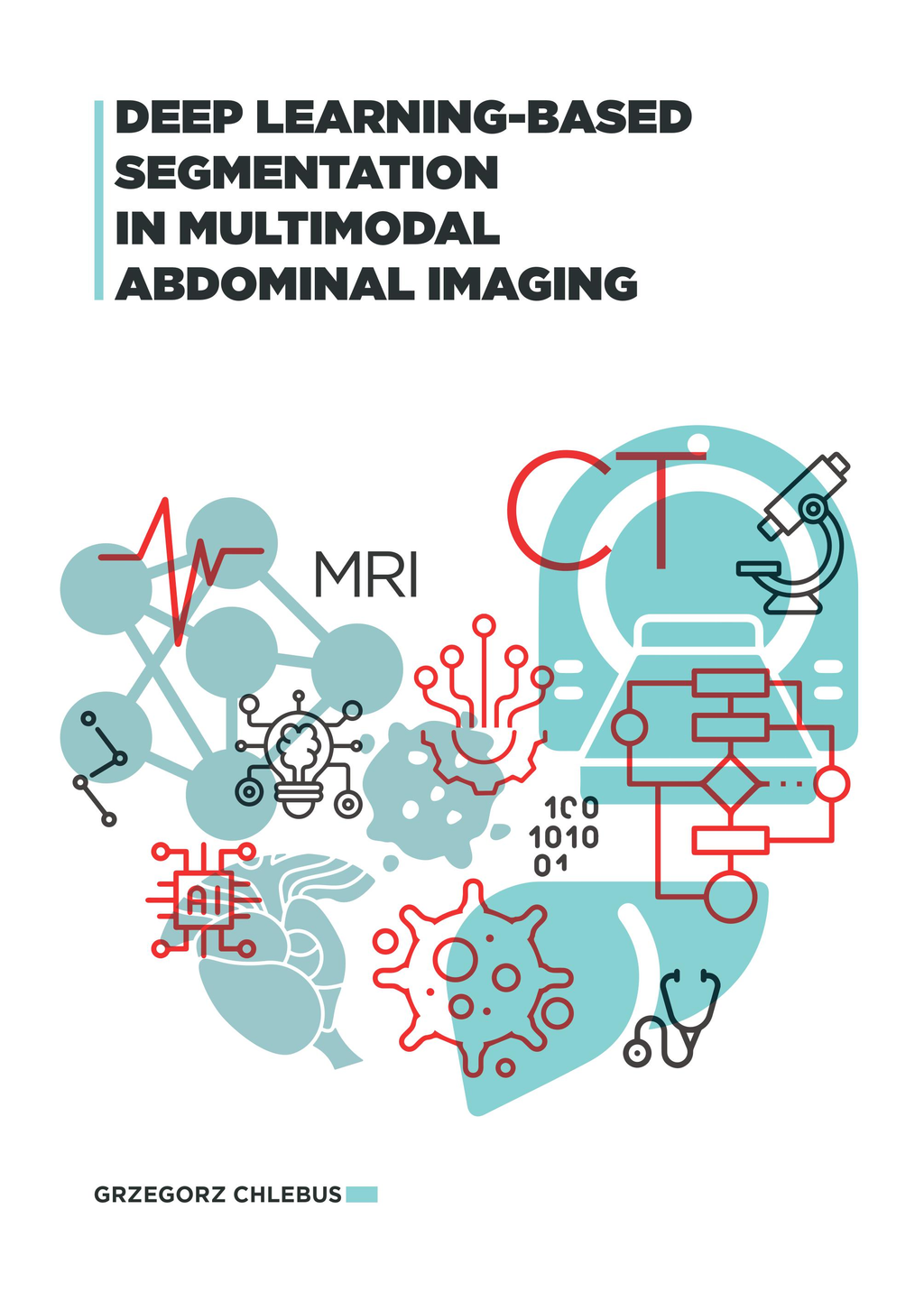Deep Learning-Based Segmentation in Multimodal Abdominal Imaging
G. Chlebus
- Promotor: B. van Ginneken and H. Hahn
- Copromotor: H. Meine and A. Schenk
- Graduation year: 2022
- Radboud University, Nijmegen
Abstract
This thesis is devoted to the applications of deep learning segmentation algorithms to multimodal abdominal imaging. It focuses on the segmentation of liver, prostate, and liver tumors in CT and MRI images.
It aims not only to propose and evaluate new segmentation architectures, but also to investigate aspects such as the required time for the correction of automatic segmentation results, the impact on the inter-observer variability, and the optimization of annotation effort.
The following objectives were undertaken as part of this thesis:
-
The development of a two-stage cascade system for liver and liver tumor segmentation in CT images (Chapter 2);
-
The development of an ensemble of three orthogonal 2D CNNs for liver segmentation in late-phase T1W MRI images (Chapter 3);
-
The investigation of various active learning strategies to optimally select a set of CT slices to obtain the best possible liver segmentation method in CT without the need to manually annotate a large amount of training data (Chapter 4);
-
The development of a novel multi-planar 3D anisotropic CNN architecture for prostate segmentation in multi-planar T2W MRI images (Chapter 5).
